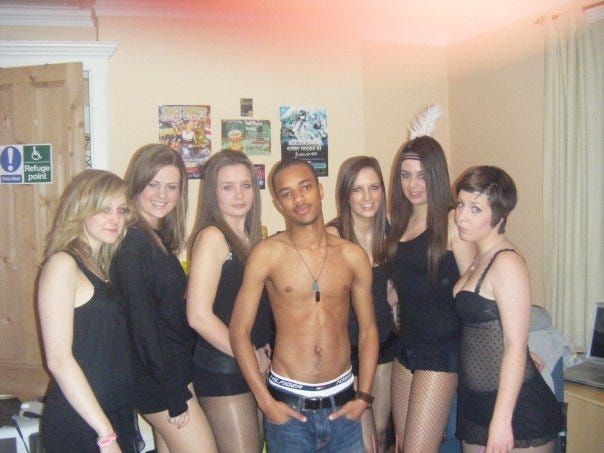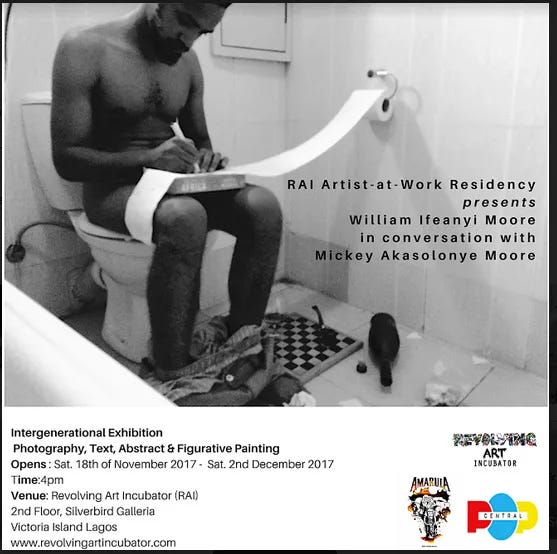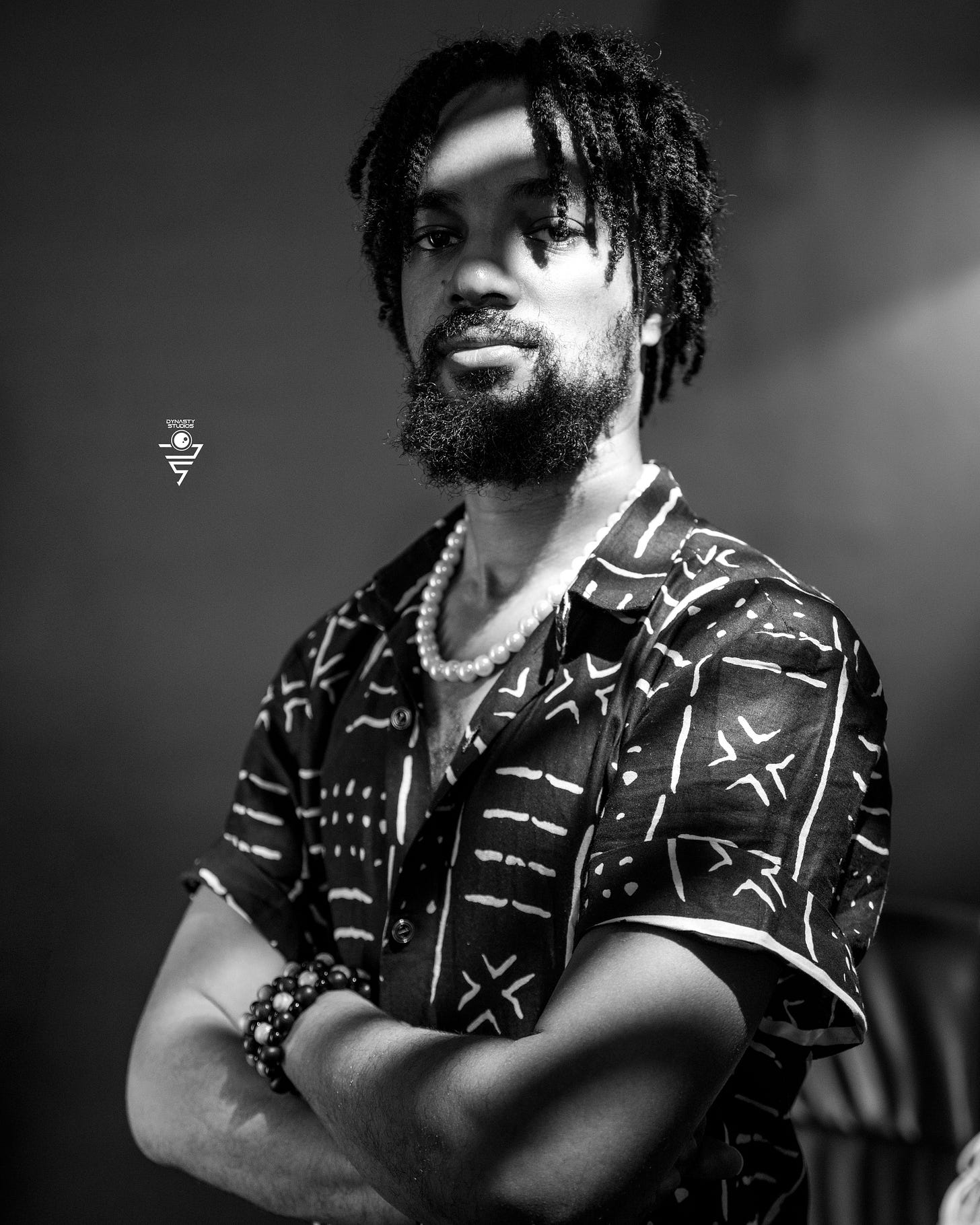For the longest time, I thought of myself as lazy and unmotivated. It took a while before I finally recognized that what I was dealing with was procrastination. And even then it took more time to truly understand my relationship with it. I used to be a hyper-productive writer as a child. By the time I was 17, I had already written four books. Admittedly, three of them weren’t any good (I sincerely hope that old computer has been lost forever). They were just rehashed versions of my favorite action stories - Metal Gear Solid, The Bourne Series (the books), and practically every other spy thriller that captured my teenage imagination. The fourth book, however, marked a turning point for me. Inspired by reading Roots, I attempted to write a novel about slavery, focusing on how the protagonist’s kidnapping affected those left behind. I was also heavily influenced by watching Amistad and a film about William Wilberforce; none of these seemed to show the story from the African side of the Atlantic. This novel eventually landed me on the shortlist for the prestigious Miles Morland Scholarship for African Writers. But guess what? I hoarded that manuscript for six years without sending it to a single agent. Why?
Procrastination! For context, I had written a 90,000 world novel, but I didn’t have the “strength” to copy and paste three chapters and draft a cover letter? You would be surprised how many writers get stuck in this phase.
The transition from A-level college to university provided the perfect excuse for me to put off looking for an agent. With the newfound freedom that came with moving from the strict confines of a boarding school (which I had been in since age 9) to the big, bad world of university, I jumped at every distraction. Armed with my big brother’s ID (since I wouldn’t turn 18 until 30 days after resumption), I dove headfirst into alcohol, sex, and other things I will not write about because I might need to run for president one day. Beyond the high of what now feels like hedonism, it was a period of intense self-discovery. I questioned my faith, reevaluated my values, and nearly drowned myself in philosophy and related fields. For context, I was a Pharmacy student. Like many African parents, it was medicine, dentistry, pharmacy, engineering, or you were wasting your life away.

This journey of self-discovery served as a convenient smokescreen, allowing me to evade what I knew to be the real issue: I didn’t send the story out because I was afraid of rejection. I had moved from a childhood world of creative freedom—where the only validation needed was the amusement of my friends—into an industry where my craft was scrutinized and judged. This fear wasn't limited to my writing; I felt it even with my academic work, like my final-year project, which would heavily influence the degree I’d receive. I ended up having to draft the entire thing in under two weeks, and this was a time before ChatGTP. Phew!
At its core, my procrastination wasn’t just about avoiding the pain of a negative outcome. It was also about protecting my ego. It was easier not to put in effort, so I could tell myself and others that if I ever did decide to try, I’d be better than those who were putting in the work.
“Imagine if I used just 60% of my powers!” I would think to myself.
After I graduated and completed my pre-reg (Pharmacy stuff), I returned to Nigeria, vowing to become a writer again. I wish I could tell you that I’d figured out a hack for procrastination, but honestly, I was just riding a wave of confidence after receiving some approval for my first novel. Four years of university, a gap year, and a pre-reg year later—with just a few months left to live in England—I finally worked up the courage to send the manuscript to an agent. Well, at least the three chapters and a synopsis, as is the standard requirement. On reflection, I realized I had the nerve to do this because if it was rejected I could leave the country and never show my face again. A bit of an overreaction, but yeah, emotions are raging sea. I waited for months, and then I received a response in the mail.
Not the win I had hoped for, but it was enough to keep my faith alive as a first-time querier. When I returned to Nigeria, I doubled down: started a personal blog, wrote a column for Bella Naija, and dreamed of grand success when I finally wrote my next solo adult novel. At this point, I didn’t feel Lonely Roads was a good reflection of my skill level and even felt somewhat ashamed of it. Then one night, after a few drinks, I sent a query to a local publisher, Bookvine, and to be sober surprise, they accepted it! Around this time, I was dating a poet—perhaps she bit me too hard on the neck or something because I ended up writing a poetry collection that was exhibited at the Revolving Art Incubator.

Later, I even created a poetry-based play to open for the Lagos Photo Festival. I went independent with my joint project, 13 Moons, which saw over 50,000 downloads, and my social media pages were growing even though I wasn't putting in serious effort. Despite all this, I knew deep down that I was avoiding the true challenge of going pro. There is the procrastination of total task paralysis, and there is a more nefarious strain that has you putting in enough work to tell yourself you are doing well enough so perhaps gear 2 is okay. When you are ready, you can hit them with gears 4 and 5.
If reading is more your speed - you can check 13 Moons out HERE…
What does going pro mean?
Going pro isn’t just about showing up occasionally and snagging a feature here or there. It’s about approaching writing as a full-fledged career—an everyday commitment. I used to believe that if I landed a publisher, they would handle everything else, leaving me to just write. But I soon learned that most published writers don’t make enough to quit their day jobs. In fact, over 95% don’t. Achieving sustainable success as a writer, with a loyal fanbase, usually requires years of consistent effort. Going pro means taking control of your career, and understanding that even if you do go with a publisher, it’s better if they come looking for you, not the other way around. You have to become the magnet. And when I talk about sustainable living, I don’t mean becoming a billionaire. I mean earning enough to live securely and with dignity, enjoying some of life’s finer things, like travel and good food—because, honestly, why else are we here?
For many years, I avoided this call to go pro, contenting myself with small wins. Perhaps you’re doing this too—applying for this, featuring in that, achieving a step up from total paralysis, but still not going full throttle. I’d console myself with the thought, “I’m only using 40% of my powers.” Better than zero, but still. This left me room to believe that if I wasn’t succeeding as I’d dreamed, it was because I wasn’t giving my best. I’d tell myself that one day, when I was truly ready, the world would be shocked. This illusion made me feel in control, as though my success was entirely up to me. The small wins validated this thinking, allowing me to coast. I worked largely on the Sage Land series with a co-writer, who was more motivated because it was his brainchild.
You can have a listen HERE or click the image - I am actually very proud of this project!
I was in a comfortable space—gaining experience, accolades, even a bit of fame—but still waiting for something external to propel my career. In my mind, it wasn’t my responsibility to drive my success; that was the publisher’s job. COVID-19 caught me in this mindset, and I thought, “What better time to write a novel?” I believed my skills had improved over the years, and it was finally time to unleash my grown-up solo debut. The world wasn’t ready! By the end of the lockdown, I had a first draft, and the submissions began. Still afraid of rejection, I kept it to just four local presses. Two made offers, and two rejected it—not bad odds, considering how many rejections publishers typically hand out. That’s a 50% success rate. I wish I could tell you how emotionally painful I found the two rejections. I am still trying to get myself to a place where these rejections do not leave a hole in my spirit.
I was nearly ready to sign, but then I sought advice from my writer friends with experience in publishing. I had long since shed the need for prestige after exhibiting in galleries, opening for festivals, getting shortlisted for awards, and running a column that regularly attracted over a hundred comments. My only question now was whether these publishers would invest the effort needed to launch me into orbit. From my research and conversations, the answer was a resounding no. The market had changed. The old order of consumption was gone, at least at the entry level. To make a real impact today, a writer needs to release at least five books in quick succession to build their brand. Most of these publishers wouldn’t even consider a two-book deal. And if you aren’t bankable, they aren’t putting in that promo money that could be going towards James Patternson’s 385959th book (this is a random number - you get the point).
I found myself at a crossroads, with a dream offer in one hand and an uncharted path in the other. I chose to walk the uncharted path.
Won’t post the second because they are more open to terms that fit my vision on a larger scale - that conversation is still ongoing.
And if you wanted to peek into this new novel - well aren’t I feeling generous today?
It may sound crazy, even absurd. And to be clear, while I have chosen to keep these names hidden because I am big on privacy, these are from easily Top 5 publishers in Africa with strong representation in the UK. My father-in-law thinks I’m mad for choosing to go independent, but he’s a relic of the old order too - I actually love him.
By rejecting these offers, I have no choice but to present a counter-offer to myself. This decision has forced me to confront procrastination in all its forms and figure out how to defeat this final boss. Because really, if I won’t take publishers seriously, and I can’t take myself as an independent writer seriously, who is going to take me seriously?
My decision: F*CK IT! There’s no secret formula, no YouTube video with all the answers, no daily routine hack. The key is simply deciding to go pro and understanding that certain actions are expected of a professional writer—one of which is showing up every day with intention. So, as you read this, know that my first intention is to grow my YouTube channel from 1 to 100 videos of my content, write every day for the next 100 days, and cultivate my fans and tribe from around the world. It’s not that I feel invincible or that I’m certain my plans will work—nope. The anxiety is still there. The only difference is that I’ve chosen to detach from the outcome and focus on just adding value. I’m not going to obsess over metrics; I’m going to obsess over connections. I need 1000 connected lovers of my work, not 1,000,000 fair-time admirers.
If you’re reading this and you’ve put off your dreams a million times, know that you’re not alone. And also know that you won’t find a magic bullet to make procrastination disappear, and if it’s been an issue for years, you probably have addictions and other habits that reinforce it. The good news? It only takes one day of action to start. And then another day. And another.
Thank you for reading this rather lengthy rant about my shortcomings. Don’t forget to subscribe for more!









"Just do it and continue until something happens"... I might have to adopt this.
I just finished reading The War of Art and it touches very similar doubts and fears. Check it out if you haven't already. I am largely in the same spot as you are in terms of my trajectory toward the decision of going pro, albeit without all the fame and girlies you shared lol! Showing up is all there is, let's do it.